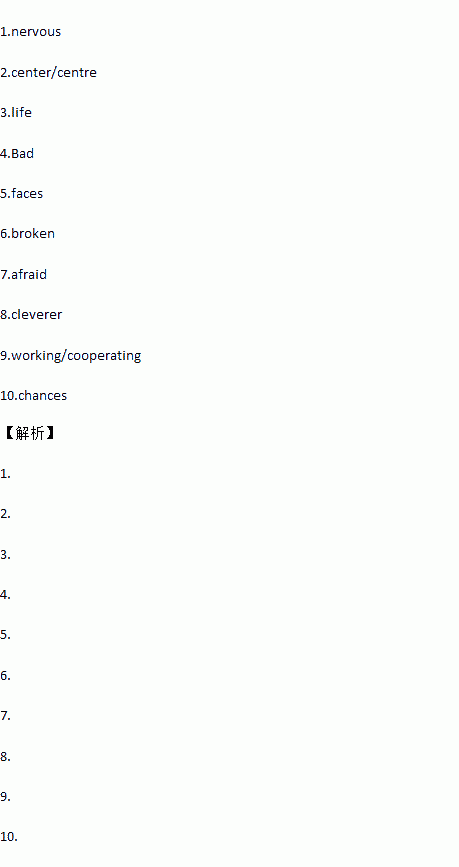题目内容
阅读下列短文,根据短文内容填写表格 (每空限填一词)。
How do you feel when you have to make a speech in front of class? What about when you go to a birthday party? Do you get really shy?
Shyness means feeling nervous or frightened when you’re around other people. Experts (专家) have found that more than 80 percent of middle school students feel afraid to be the centre of attention. Some kids are born shy. Some become shy later because of their life experiences.
It’s OK if it takes you a while to feel yourself again when you go to a new place or meet new people. In fact, everybody gets a little shy sometimes. It’s just a case of how much.
Most people have red faces and talk in broken sentences when they get shy. But some become so shy that they won’t go to a restaurant because they are too nervous to order and pay the bill (账单). Some are afraid of meeting new people, so they seldom go outside. This kind of shyness can be bad for a person.
If shyness doesn’t stop you from doing something you want to do, being shy isn’t a very big problem. Some experts say shy people are quieter and cleverer because they think more and talk less. Shy people are also good at working with others because they think more for other people. Some great people in history were shy, too.
You see, being shy isn’t all bad. But remember not to let good chances pass by just because of it! If you have to sing a song at a birthday party or practise your spoken English in front of others, just do it! There’s nothing to be afraid of.
Shyness
Meaning | ●To feel1.or frightened | |
Causes | ●To be the2.of attention | |
Effects | 4.effects | ●To have red5. |
Good effects | ●To be quieter and8. | |
Advice | ●To take hold of (抓住) good10. |
 轻松暑假总复习系列答案
轻松暑假总复习系列答案
